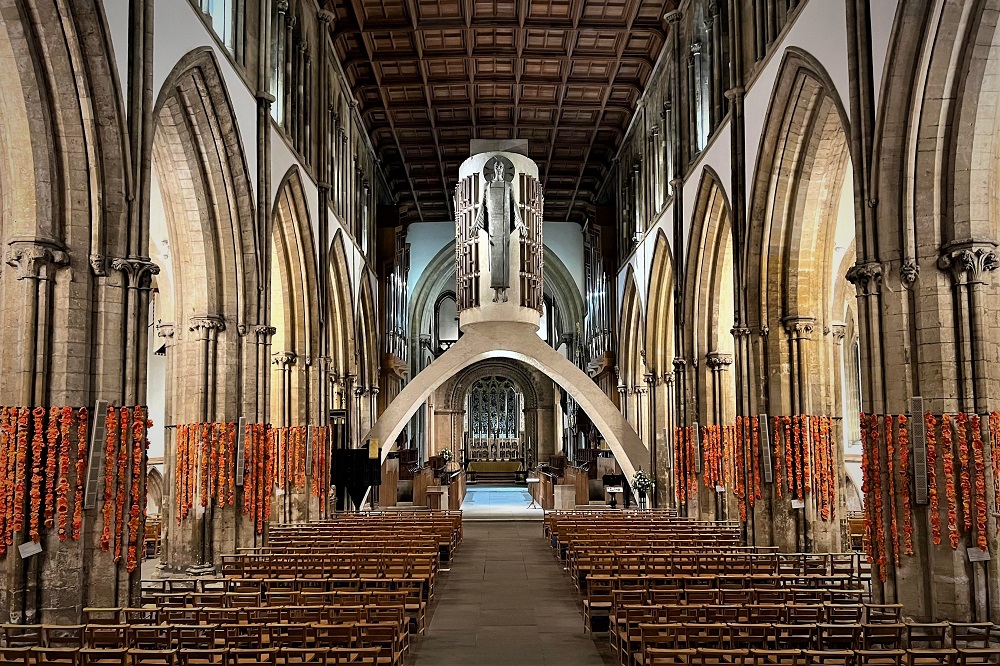Church in Wales takes next step towards allowing same-sex marriages

Martin Shipton
The Church in Wales is taking a further step towards changing its rules so same-sex weddings can take place in its churches.
Since 2021 it’s been possible for gay couples who have exchanged wedding vows in a civil ceremony to have their new status blessed in a church service. But so far the necessary constitutional move has not been made to permit weddings themselves.
According to the Church in Wales’ own rules, all three of its sections – clergy, bishops and lay members – must approve such a change, each by a two-thirds majority.
But while senior figures are confident that the clergy and bishops would approve the change, they have not been sure of the lay section, a significant number of whom maintain the conservative view that marriage can only be between a man and a woman.
Now a national service is being organised at Llandaff Cathedral to commemorate people who have suffered exclusion from Christian communities because of their sexuality or gender identity.
The service will remember those who have lost their lives to suicide, or been harmed as a result of exclusion, and will also look forward to reconciliation.
It is organised by OneBodyOneFaith, the UK’s oldest Christian LGBT+ members’ network, in partnership with The Gathering, an LGBT+ church in Cardiff, and supported by Church in Wales bishops,
Reconciliation
Guests will be invited to lay white flowers and hold a minute’s silence before taking part in an act of reconciliation, where purple flowers will be laid to signal hope for the future. There will also be a memory book where names of loved ones can be written. Prayer and pastoral support will be available for those who need it.
The Bishop of Llandaff, Mary Stallard, who will open the service with a welcome and prayer, said: “I am delighted that this service is happening in Llandaff Cathedral. We value our calling to be an inclusive church, and this work underlines this. It is my firm hope that this service will offer a way-marker on an important journey of healing and transformation, both for those who take part and for our wider church and faith communities.”
The Bishop of St Asaph, Gregory Cameron, who will give the memorial homily, said: “As the Church reassesses its attitude towards LGBT+ persons, we have to recognise not only discrimination, but also real harm caused to individuals. This service is intended to contribute something towards acknowledgement of that harm, and to take a step in the direction of healing.”
This will be the second national memorial service organised by OneBodyOneFaith. The first was held in London in April 2023.
Opportunity
Luke Dowding, Chief Executive Officer at OneBodyOneFaith, said: “This memorial service is a bold opportunity to speak truthfully about the harm LGBT+ people continue to experience, but also of a future where the Christian church is no longer complicit in this. We are grateful for traditions like the Church in Wales who demonstrate clear leadership on this.”
Everyone is welcome to attend the service. It takes place at Llandaff Cathedral on Sunday May 26 at 5.30pm. Places can be booked and seats reserved via Eventbrite.
Bishop Cameron responded with further information about the situation in a Church in Wales online Q&A. He said: “The Canon [Church rule] providing for Same-Sex Blessings following a Civil Ceremony of Marriage or Partnership, which was passed in September 2021, stipulated a five year experimental use of the rite, which will expire on September 30 2026.
“When the then Bench of Bishops introduced the legislation to the Governing Body of the Church in 2021, they made it clear that they believed that this was only a transitional measure, and that a review of the marriage rites of the Church in Wales would have to follow. In his enthronement sermon of April 30 2022, the Archbishop made it clear that it was one of his objectives to ensure the introduction of ‘equal marriage’ within the five year period.
“As yet, the current Bench has not undertaken any formal review of the Canon nor discussed next steps, and these questions are a useful prompt that we shall soon have to do so. This is not unusual for canons of this nature, and the three year mark is probably a good point at which to assess progress and begin preparations for what happens next.
“Neither the canon nor the bishops have required any gathering of formal statistical information. Having consulted with my colleagues, however, I am able to report that it is our understanding that a small but steady stream of same sex couples have availed themselves of the rite, in the order of about two dozen blessings of which the Bench are aware, although as no formal reporting is required there may well be many more.
“What we can report is that those couples of which we know have given very positive accounts of the blessing and the liturgy, its significance for their marriages or partnerships, and the warmth of support given to them from family, friends, clergy and congregations. It is also true that several same sex couples have reported that it is their hope and intention to wait until a Church Marriage Service becomes available before they wish to seek a Church blessing or ceremony.
“Since September 2021, there have been three new members of the Bench and this newly constituted Bench will have to agree what approach they wish to adopt as the five year experimental period progresses. I am sure that we will address this work with the bench’s customary vigour and reflection, and we will report through the normal channels.”
Support our Nation today
For the price of a cup of coffee a month you can help us create an independent, not-for-profit, national news service for the people of Wales, by the people of Wales.





